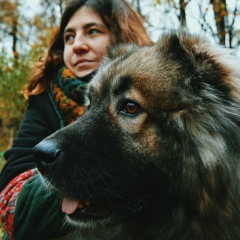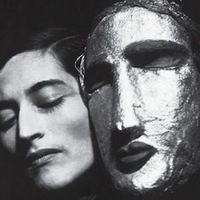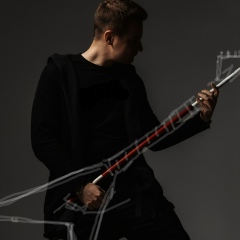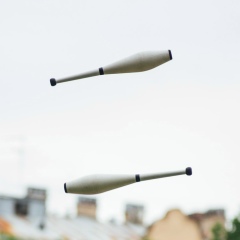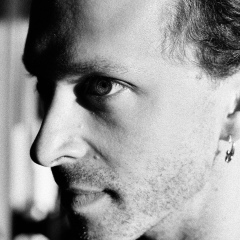Мой день победы.
Я помню, что в 2009-10 годах мне очень были важны георгиевские ленточки. Тогда ещё про них мало знали, и носить их можно было по желанию. Я даже спрашивал ветеранов: имею ли я право повязать ленточку в знак почтения к их подвигу? Сейчас я не могу надеть чёрно-жёлтую ленточку; я не могу надеть и свастику, хотя, я должен признать, что это очень красивый символ: чёрная свастика на белом фоне, да ещё и с красной каймой! Это было бы очень красиво носить, если бы не тот кошмар, который стоит за этой свастикой.
Было бы очень хорошо надеть георгиевскую ленточку. Может быть, она и не такая красивая, но зато в ней было для меня очень много чего: случайная аллюзия к Мандельштаму, зримая попытка выразить свою память и своё почтение людям, которые помогли спасти мой народ и мою семью. Но, к сожалению, как и свастика, георгиевская ленточка стала символом современной российской власти. Я не могу её больше надеть.
Я хотел бы почтить подвиг людей, которые отказались от своей жизни, потому что верили, что спасают свои семьи. Я хотел бы почтить подвиг их семей: оставленных близких и родных, которые были оторваны от тех, кого они любили. Я хочу почтить подвиг людей, которые сражались против Гитлеровской Германии — то есть против зла.
Здесь есть очень сложный момент, но я хочу сказать о нём: я чту подвиг людей, который вдруг промелькнул в истории. Люди, которые отправились защищать свою страну от тех, кто пришёл убивать их семьи, достойны памяти и почтения.
Наоборот, те, кто был виновен в их смерти и страданиях достойны осуждения — Сталин, Гитлер и прочая мразь, снявшая сливки с крови тех, кто умер.
Я хочу в этот день сказать, что я рад, что люди — много людей совершили подвиг. Я помню этот подвиг. Но я хочу, чтобы такого больше никогда не случалось. Мир не должен быть устроен так, чтобы они были нужны.
9 мая — это траурный праздник. Это праздник окончания войны. Что это значит? Это значит, что закончилась ежедневная смерть тысяч людей. Да, это повод для радости. Но здесь есть слишком много грусти о тех, кто умер.
Мне нравится, что многие мои друзья понимают, что 9 мая — становится как георгиевская ленточка и как свастика. Преступная и пошлая власть делает всё, чтобы поставить память о многоликом подвиге простых людей на конвейер, чтобы использовать новых людей себе на потребу. Это хороший повод не праздновать этот день.
Я не надену ленточку. Но я буду помнить тех, кто умер, чтобы мы могли жить. И я буду помнить тех, кто отдавал приказы, чтобы они умерли. Мой праздник — не про парады, не про власть и ленточки. Мой праздник — про тех, кто сумел выжить в окопах, в танках, на воде и под водой, про тех, кто был в воздухе и под землёй, кто сражался, чтобы больше не было войны.
Я помню, что в 2009-10 годах мне очень были важны георгиевские ленточки. Тогда ещё про них мало знали, и носить их можно было по желанию. Я даже спрашивал ветеранов: имею ли я право повязать ленточку в знак почтения к их подвигу? Сейчас я не могу надеть чёрно-жёлтую ленточку; я не могу надеть и свастику, хотя, я должен признать, что это очень красивый символ: чёрная свастика на белом фоне, да ещё и с красной каймой! Это было бы очень красиво носить, если бы не тот кошмар, который стоит за этой свастикой.
Было бы очень хорошо надеть георгиевскую ленточку. Может быть, она и не такая красивая, но зато в ней было для меня очень много чего: случайная аллюзия к Мандельштаму, зримая попытка выразить свою память и своё почтение людям, которые помогли спасти мой народ и мою семью. Но, к сожалению, как и свастика, георгиевская ленточка стала символом современной российской власти. Я не могу её больше надеть.
Я хотел бы почтить подвиг людей, которые отказались от своей жизни, потому что верили, что спасают свои семьи. Я хотел бы почтить подвиг их семей: оставленных близких и родных, которые были оторваны от тех, кого они любили. Я хочу почтить подвиг людей, которые сражались против Гитлеровской Германии — то есть против зла.
Здесь есть очень сложный момент, но я хочу сказать о нём: я чту подвиг людей, который вдруг промелькнул в истории. Люди, которые отправились защищать свою страну от тех, кто пришёл убивать их семьи, достойны памяти и почтения.
Наоборот, те, кто был виновен в их смерти и страданиях достойны осуждения — Сталин, Гитлер и прочая мразь, снявшая сливки с крови тех, кто умер.
Я хочу в этот день сказать, что я рад, что люди — много людей совершили подвиг. Я помню этот подвиг. Но я хочу, чтобы такого больше никогда не случалось. Мир не должен быть устроен так, чтобы они были нужны.
9 мая — это траурный праздник. Это праздник окончания войны. Что это значит? Это значит, что закончилась ежедневная смерть тысяч людей. Да, это повод для радости. Но здесь есть слишком много грусти о тех, кто умер.
Мне нравится, что многие мои друзья понимают, что 9 мая — становится как георгиевская ленточка и как свастика. Преступная и пошлая власть делает всё, чтобы поставить память о многоликом подвиге простых людей на конвейер, чтобы использовать новых людей себе на потребу. Это хороший повод не праздновать этот день.
Я не надену ленточку. Но я буду помнить тех, кто умер, чтобы мы могли жить. И я буду помнить тех, кто отдавал приказы, чтобы они умерли. Мой праздник — не про парады, не про власть и ленточки. Мой праздник — про тех, кто сумел выжить в окопах, в танках, на воде и под водой, про тех, кто был в воздухе и под землёй, кто сражался, чтобы больше не было войны.
My victory day.
I remember that in 2009-10, St. George ribbons were very important to me. Then they still knew little about them, and they could be worn at will. I even asked veterans: do I have the right to tie a ribbon in deference to their feat? Now I can not put on a black and yellow ribbon; I can’t put on a swastika either, although I must admit that it is a very beautiful symbol: a black swastika on a white background, and even with a red border! It would be very beautiful to wear, if not for the nightmare behind this swastika.
It would be very good to put on a St. George ribbon. Maybe she is not so beautiful, but there was a lot of things for me in her: a random allusion to Mandelstam, a visible attempt to express my memory and reverence to the people who helped save my people and my family. But, unfortunately, like the swastika, the St. George ribbon has become a symbol of modern Russian power. I can’t put it on anymore.
I would like to honor the feat of people who abandoned their lives because they believed that they were saving their families. I would like to honor the feat of their families: abandoned relatives and relatives who were divorced from those whom they loved. I want to honor the feat of the people who fought against Hitler Germany - that is, against evil.
There is a very difficult moment here, but I want to say about it: I honor the feat of people who suddenly flashed through history. People who went to defend their country from those who came to kill their families are worthy of memory and respect.
On the contrary, those who were guilty of their death and suffering are worthy of condemnation - Stalin, Hitler and other scum that skimmed the blood of those who died.
I want to say this day that I am glad that people - many people have accomplished a feat. I remember this feat. But I want this to never happen again. The world should not be designed so that they are needed.
May 9 is a funeral holiday. This is a celebration of the end of the war. What does it mean? This means that the daily death of thousands of people has ended. Yes, this is a reason for joy. But there is too much sadness about those who have died.
I like that many of my friends understand that on May 9th it becomes like a St. George ribbon and like a swastika. Criminal and vulgar power does everything to put the memory of the many-sided feat of ordinary people on the conveyor, in order to use new people to their needs. This is a good reason not to celebrate this day.
I will not put on a ribbon. But I will remember those who died so that we can live. And I will remember those who gave orders that they die. My holiday is not about parades, not about power and ribbons. My holiday is about those who managed to survive in the trenches, in tanks, on the water and under water, about those who were in the air and underground, who fought so that there would be no more war.
I remember that in 2009-10, St. George ribbons were very important to me. Then they still knew little about them, and they could be worn at will. I even asked veterans: do I have the right to tie a ribbon in deference to their feat? Now I can not put on a black and yellow ribbon; I can’t put on a swastika either, although I must admit that it is a very beautiful symbol: a black swastika on a white background, and even with a red border! It would be very beautiful to wear, if not for the nightmare behind this swastika.
It would be very good to put on a St. George ribbon. Maybe she is not so beautiful, but there was a lot of things for me in her: a random allusion to Mandelstam, a visible attempt to express my memory and reverence to the people who helped save my people and my family. But, unfortunately, like the swastika, the St. George ribbon has become a symbol of modern Russian power. I can’t put it on anymore.
I would like to honor the feat of people who abandoned their lives because they believed that they were saving their families. I would like to honor the feat of their families: abandoned relatives and relatives who were divorced from those whom they loved. I want to honor the feat of the people who fought against Hitler Germany - that is, against evil.
There is a very difficult moment here, but I want to say about it: I honor the feat of people who suddenly flashed through history. People who went to defend their country from those who came to kill their families are worthy of memory and respect.
On the contrary, those who were guilty of their death and suffering are worthy of condemnation - Stalin, Hitler and other scum that skimmed the blood of those who died.
I want to say this day that I am glad that people - many people have accomplished a feat. I remember this feat. But I want this to never happen again. The world should not be designed so that they are needed.
May 9 is a funeral holiday. This is a celebration of the end of the war. What does it mean? This means that the daily death of thousands of people has ended. Yes, this is a reason for joy. But there is too much sadness about those who have died.
I like that many of my friends understand that on May 9th it becomes like a St. George ribbon and like a swastika. Criminal and vulgar power does everything to put the memory of the many-sided feat of ordinary people on the conveyor, in order to use new people to their needs. This is a good reason not to celebrate this day.
I will not put on a ribbon. But I will remember those who died so that we can live. And I will remember those who gave orders that they die. My holiday is not about parades, not about power and ribbons. My holiday is about those who managed to survive in the trenches, in tanks, on the water and under water, about those who were in the air and underground, who fought so that there would be no more war.
У записи 51 лайков,
3 репостов.
3 репостов.
Эту запись оставил(а) на своей стене Марк Гондельман
























